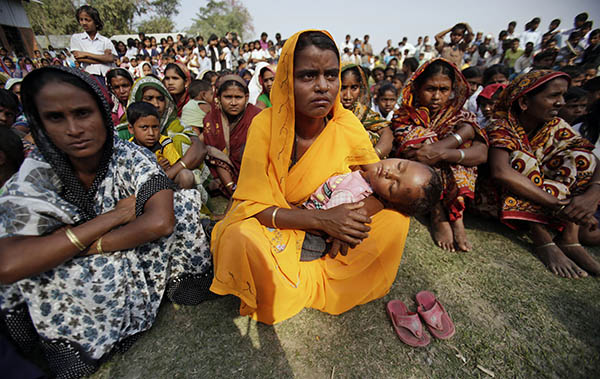
PM Modi has ignored India’s Health Sector, the nation’s health on the verge of collapse: Lancet Study
India’s health sector has been largely ignored and not been given the slightest of importance under the current Modi government, says the latest study conducted by the world’s most revered health journal – “The Lancet”. The study has severely criticised PM Narendra Modi for this situation that has put India’s health sector on the verge of a collapse.
The journal will publish the study, written by some of the world’s foremost experts on this subject on December 11th. It will question why Modi has fallen back on his word of universal health coverage that was promised during the polls and not investing in public health.
In an interview with the Times Of India, Lancet’s editor-in-chief Richard Horton said, “I don’t see any new policies, any new ideas, any significant public commitment and most importantly no financial commitment to the health sector.”
“Since Modi has come in, health has completely vanished. India is on the edge. If PM Modi does not tackle health, India’s economy combined with rising population is not sustainable. For India, health is an issue of national security. The government cannot protect the sovereignty of its nation, cannot ensure sustainability unless it has a healthy population. At present Modi has done nothing much to tackle the challenge”, Horton added.
Horton said that PM Modi seems to not have made up his mind on between the two routes that India can now take, being on the edge of a fall down; the first of investing in health and people and there by created a thriving and flourishing future, or the second of continuing to do what it is doing now and ignore health in which case the nation will see epidemics sweep across the country and destroying national security, which will be a very tragic situation.
Horton opined that failure to combat diseases like diabetes and hart disease and reduce maternal and child health will cost India largely and lead to a national meltdown. He said that the December 11 paper would challenge the Modi government on universal health coverage and what it has done for the public so far, after taking power.
According to Horton, implementing universal health coverage (UHC) that was a promise made during polls should be an absolute priority for the government. He also made the comparison “If president Obama can make the healthcare care act one of his central priorities, why can’t PM Modi make UHC his political objective.”
When asked what are the main issues that he wanted India to focus on, Horton’s answer was:
“The main issue is the lack of investment in the public health system and the growth of an unregulated private sector. And this imbalance between the unregulated private sector and the quality of care in many cases appalling compared with the public system that is struggling to meet the demands of the rising population. On top of it although there has been progress with child and maternal mortality, India has the highest number of child and new born deaths. It is not just an issue of national concern but of that of national shame for the Indian government and should propel it in making health one of its central objectives. Where India stands with maternal and child health is a major concern. There are still 600,000 under five deaths in India, maternal mortality is still very high”.
“Maternal and child care are indicators of civilised society. Civilised society should not be letting its mothers and daughters die. India wants to play a larger role in the world, wants to be in the security council of the United Nations, which are very legitimate objectives for India. I don’t think it can claim to be a world leader when it allows so many of its children and mothers to die of abject poverty”.
What is Horton’s advice to the Modi government to avoid a healthcare meltdown?
“Increasing percentage of GDP spent on public health system and seeing his personal leadership in UHC, in reducing rates of child and maternal mortality and addressing the epidemic of NCDs. Those should his three absolute priorities for health,” Horton added.
India’s current spend on public health is a mere 1% of its gross domestic product (GDP). That is even less than that of Iraq (3.3%), Congo Republic (3.2%) and of majority of developing countries.
The original article appeared on Times of India
Image Source: The Huffington Post